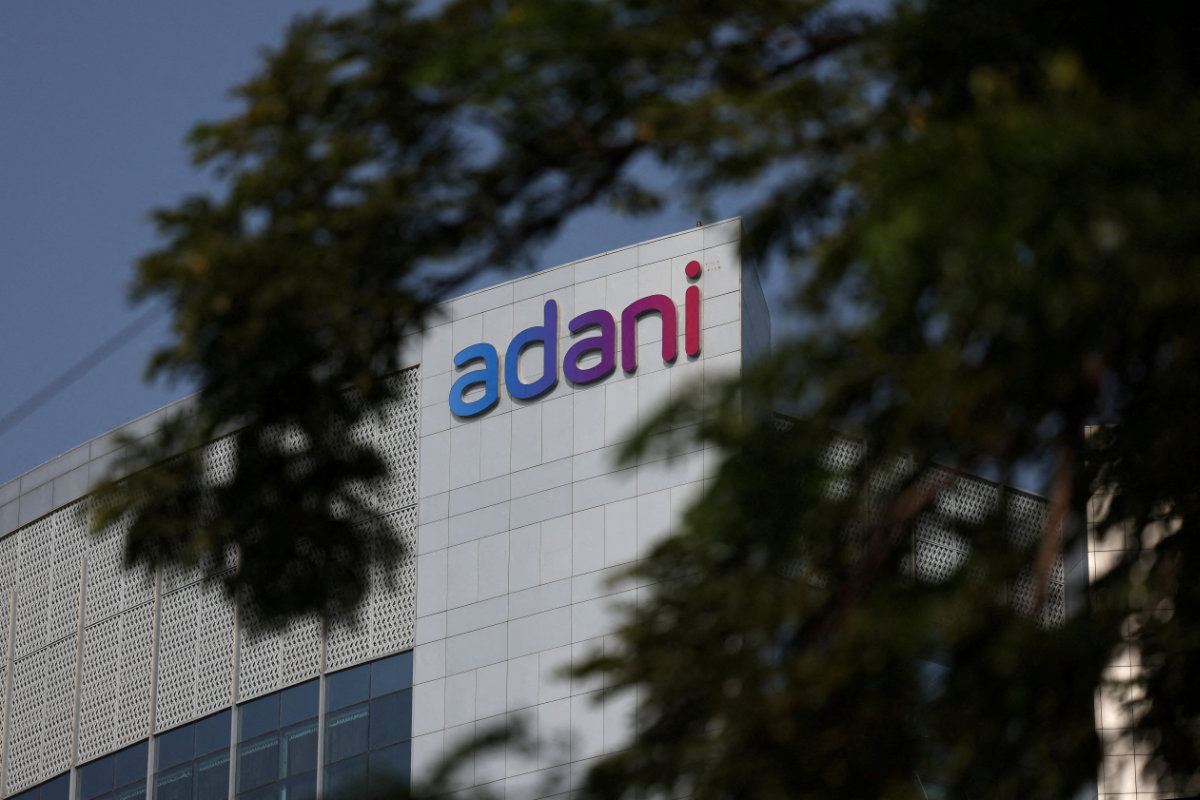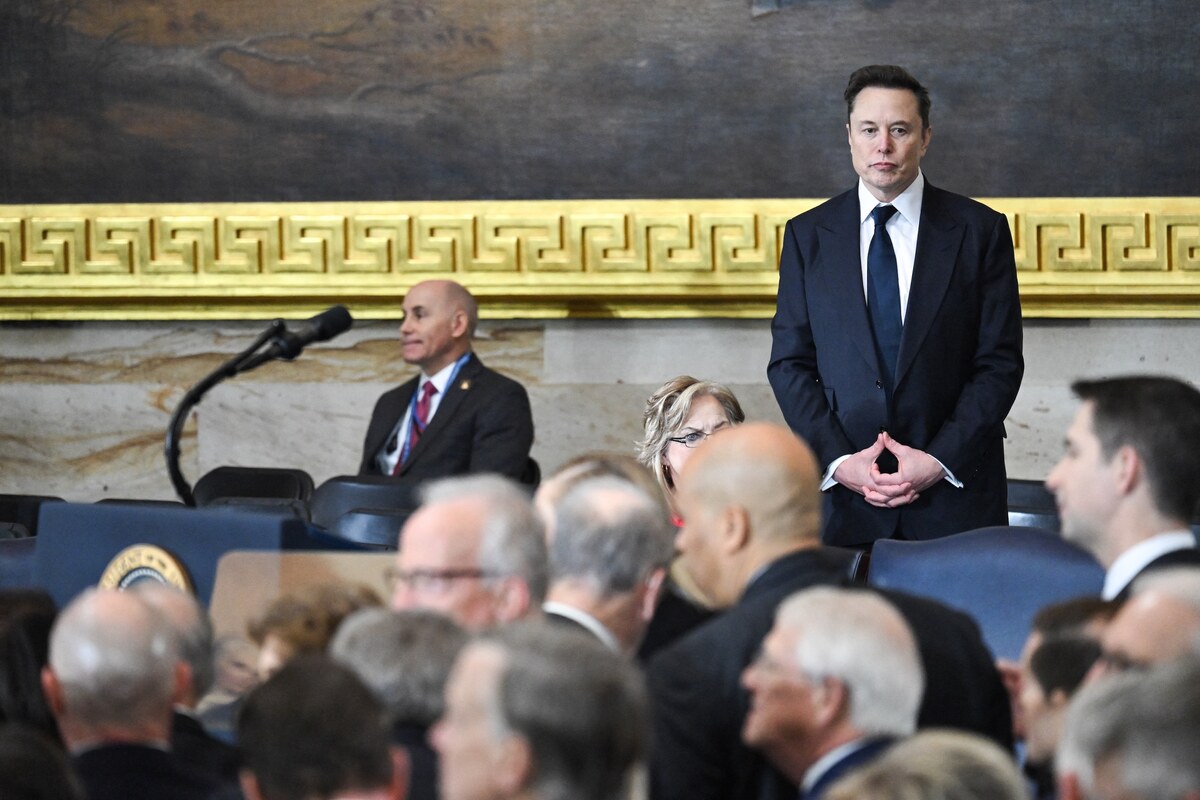NEW YORK: In June of 2020, a renewable energy company owned by Indian billionaire Gautam Adani won what it called the single largest solar development bid ever awarded: an agreement to supply 8 gigawatts of electricity to a state-owned power company.
But there was a problem. Local power companies did not want to pay the prices the state company was offering, jeopardizing the deal, according to US authorities. To save the deal, Adani allegedly decided to bribe local officials to persuade them to buy the electricity.
That allegation is at the heart of US criminal and civil charges unsealed on Wednesday against Adani, who is not currently in US custody and is believed to be in India. His company, Adani Group, said the charges were “baseless” and that it would seek “all possible legal recourse.”
The alleged hundreds of millions of dollars in bribes promised to local Indian officials caught the attention of the US Justice Department and Securities and Exchange Commission as Adani’s companies were raising funds from US-based investors in several transactions starting in 2021.
This account of how the alleged scheme unfolded is drawn from federal prosecutors’ 54-page criminal indictment of Adani and seven of his associates and two parallel civil SEC complaints, which extensively cite electronic messages between the scheme’s alleged participants.
In early 2020, the Solar Energy Corporation of India awarded Adani Green Energy and another company, Azure Power Global, contracts for a 12-gigawatt solar energy project, expected to yield billions of dollars in revenue for both companies, according to the indictment.
It was a major step forward for Adani Green Energy, run by Adani’s nephew, Sagar Adani. Up until that point, the company had only earned roughly $50 million in its history and had yet to turn a profit, according to the SEC complaint.

The logo of the Adani Group is seen on the facade of its Corporate House on the outskirts of Ahmedabad, India, on November 21, 2024. (REUTERS)
But the initiative soon hit roadblocks. Local state electricity distributors were reluctant to commit to buying the new solar power, expecting prices to fall in the future, according to an April 7, 2021 report by the Institute for Energy Economics and Financial Analysis, a think tank.
Sagar Adani and the Azure CEO at the time discussed the delays and hinted at bribes on the encrypted messaging application WhatsApp, according to the SEC.
When the Azure CEO wrote on Nov. 24, 2020, that the local power companies “are being motivated,” Sagar Adani allegedly replied, “Yup ... but the optics are very difficult to cover. In February 2021, Sagar Adani allegedly wrote to the CEO, “Just so you know, we have doubled the incentives to push for these acceptances.”
The SEC did not name the Azure CEO as a defendant, but Azure’s securities filings show the CEO at the time was Ranjit Gupta.
Gupta was charged by the Justice Department with conspiracy to violate an anti-bribery law. He did not immediately respond to a request for comment.
Azure said on Thursday it was cooperating with the US investigations, and that the individuals involved with the accusations had left the company more than a year ago.
‘Sudden good fortune’
In August of 2021, Gautam Adani had the first of several meetings with an official in the southern state of Andhra Pradesh, to whom he allegedly ultimately promised $228 million in bribes in exchange for agreeing to have the state buy the power, according to the Justice Department’s indictment.
By December, Andhra Pradesh had agreed to buy the power, and other states with smaller contracts soon followed. Other states’ officials were promised bribes as well, US authorities said.
During a Dec. 6, 2021 meeting at a coffee shop, Azure executives allegedly discussed “rumors that the Adanis had somehow facilitated signing” of the deals, according to the SEC.
Gautam Adani said on Dec. 14, 2021, the company was on track “to become the world’s largest renewables player by 2030.”
“The sudden good fortune for Azure and Adani Green prompted speculation in the marketplace about the contract awards,” the SEC wrote in its complaint.
Letter from the SEC
Before long, the SEC began to probe. The agency sent a “general inquiry” letter to Azure — which at the time traded on the New York Stock Exchange — on March 17, 2022, asking about its recent contracts and if foreign officials had sought anything of value, according to the Justice Department indictment.
According to the Department of Justice, Gautam Adani told representatives of Azure during a meeting in his Ahmedabad, India office the next month that he expected to be reimbursed more than $80 million for the bribes he had paid officials that ultimately benefited Azure’s contracts.
Some Azure representatives and a leading investor in the company decided to pay Adani back by allowing his company to take over a potentially profitable project. The representatives and investor allegedly agreed to tell Azure’s board of directors that Adani had requested bribe money, but hid their role in the scheme, prosecutors said.
All the while, Adani’s companies were raising billions of dollars in loans and bonds through international banks, including from US investors. In four separate fundraising transactions between 2021 and 2024, the companies sent investors documents indicating that they had not paid bribes — statements prosecutors say are false and constitute fraud.
FBI search
During a visit to the United States on March 17, 2023, FBI agents seized Sagar Adani’s electronic devices. The agents handed him a search warrant from a judge indicating that the US government was investigating potential violations of fraud statutes and the Foreign Corrupt Practices Act.
According to prosecutors, Gautam Adani emailed himself photographs of each page of the search warrant on March 18, 2023.
His companies nonetheless went through with a $1.36 billion syndicated loan agreement on Dec. 5, 2023, and another sale of secured notes in March 2024, and once again furnished investors with misleading information about their anti-bribery practices, according to prosecutors.
On Oct. 24, federal prosecutors in Brooklyn secured a secret grand jury indictment against Gautam Adani, Sagar Adani, Gupta, and five others allegedly involved in the scheme.
The indictment was unsealed on Nov. 20, prompting a $27 billion plunge in Adani Group companies’ market value. Adani Green Energy promptly canceled a scheduled $600 million bond sale.


























